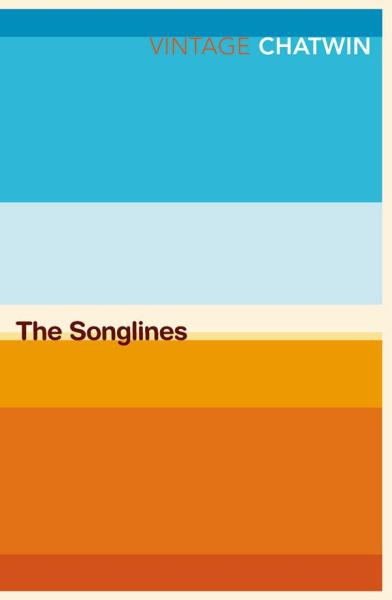
This week? Bruce Chatwin’s The Songlines, Stephanie LaCava’s An Extraordinary Theory of Objects, and Aaron Gilbreath’s A Secondary Landscape all take us to different places, even as they also explore inner geographies.
First? Bruce Chatwin. I hadn’t read anything from him in a while, and when I ran across a copy of The Songlines (complete with Rory Stewart introduction) a few weeks ago, I decided to pick it up. Mostly, it’s Chatwin’s account of his time in Australia, traveling with a man named Arkady and coming to understand the titular concept. From there, the narrative fragments somewhat: not surprisingly, the concept of songlines prompt musings on mapmaking, language, art, and more. And about two-thirds of the way through, this becomes even more explicit: Chatwin, isolated from Arkady, begins reviewing a decade’s worth of journals and drawing in other vignettes, passages from literature and philosophy, and more.
When Stephanie LaCava was young, her father’s work caused the family to relocate to Paris. An Extraordinary Theory of Objects is the story of the effect that that had on La Cava — of growing up in an environment both rarefied and inherently fragile. The nature of her father’s work remains ambiguous throughout, an occasionally nervewracking source of insecurity. This is a memoir set in a particularly specific sliver of the world — not everyone came of age with the children of ambassadors and heads of banks, after all. But it’s LaCava’s discussion of her own struggle with depression that makes this narrative hauntingly urgent.
Also notable is the book’s structure. LaCava’s memories of her time in Paris are often centered around particular objects; their origins and histories often explained in footnotes. These, in turn, are accentuated by precise line drawings of objects from CD cases to mounted beetles; the overall effect created a very layered reading experience. (Given that LaCava describes her website as “a phantom cabinet of curiosities,” I also find myself wondering what might happen if she and Lawrence Weschler — also fond of the cabinets in question — were placed on the same panel.) Her eye for details and modes is a precise one, and within this memoir we’re also given a glimpse of the birth of the writer that LaCava has become.
Origins are also on display in Aaron Gilbreath’s A Secondary Landscape, a chapbook released recently via Future Tense. Here, we see Gilbreath at twenty on a road trip from Vancouver to Oregon, looking for transcendence in potentially problematic ways. There’s a corker of an opening sentence: “We reached the Canadian border at 2am with the PCP hidden in Dean’s insulin syringes and the weed buried in the peanut butter.” Gilbreath gets the tone exactly right: he’s forthcoming about the process of searching that he went on a decade ago, even as he’s honest about the fact that some of its characteristics may not have been wise. With his recent writings for The Paris Review (among others), Gilbreath has quickly become a writer whose every piece I savor. This chapbook, in just over 30 pages, offers a conscise version as to why.
Follow Vol. 1 Brooklyn on Twitter, Facebook, Google + our Tumblr, and sign up for our mailing list.

1 comment